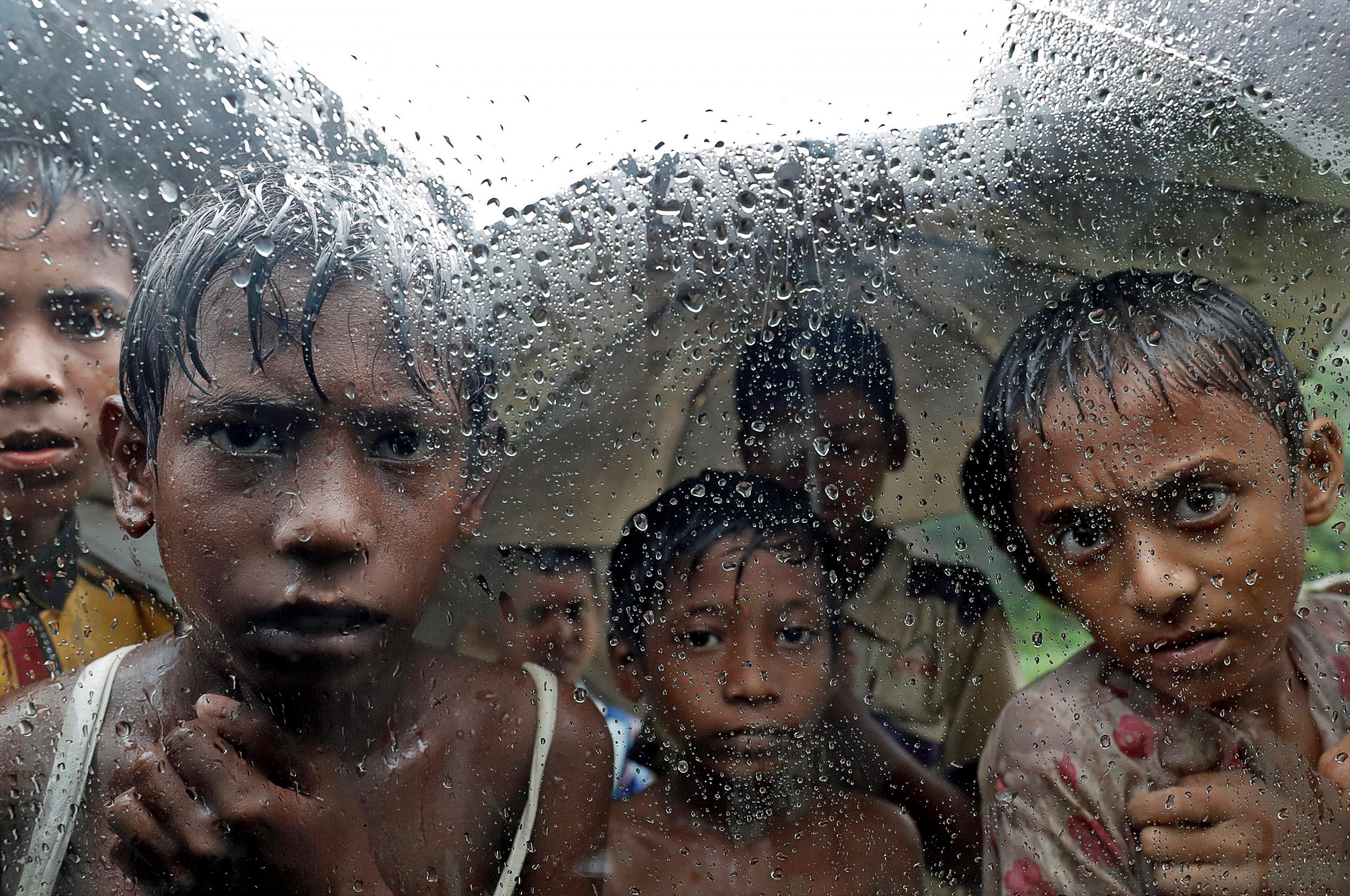Rohingya Muslim crisis: UK bans military training in Burma over ethnic cleansing
Britain vows to halt ‘educational training’ of troops in country led by Nobel Peace Prize winner Aung San Suu Kyi

Theresa May has responded to criticism that the UK has dragged its heels on “ethnic cleansing” in Burma by announcing a ban on military training in the country.
The Ministry of Defence will “stop all defence engagement and training of the Burmese military” until it ends its security crackdown against the Muslim Rohingya minority, the Prime Minister said.
More than 310,000 people have fled to Bangladesh in recent weeks and more are trapped on the border, amid reports of extrajudicial killings and burning of entire villages.
This week, the UN’s most senior human rights official described Burma’s actions as a “textbook example” of ethnic cleansing.
Last week, Boris Johnson was criticised for describing Aung San Suu Kyi, Burma’s de facto leader and the Nobel Peace Prize-winner, as “one of the most inspiring figures of our age”, despite the violence.
And, in Canada, Ms May appeared flat-footed when Justin Trudeau, the Canadian Prime Minister, revealed he had personally spoken with Ms San Suu Kyi, to urge her to pull back.
Now the UK will end what No 10 called “educational training” of Burma’s troops, stressing the Ministry of Defence was not engaged in combat training.
Speaking at the United Nations in New York, Ms May told Sky News: “We are very concerned about what’s happening to the Rohingya people in Burma. The military action against them must stop.
“We’ve seen too many vulnerable people having to flee for their lives. Aung San Suu Kyi and the Burmese government need to make it very clear that the military action should stop.
“The British Government is announcing today that we are going to stop all defence engagement and training of the Burmese military by the Ministry of Defence until this issue is resolved.”
Downing Street was unable to provide any detail of the extent of the UK’s current level of military training in the country.
Ms May has not spoken personally with Ms San Suu Kyi, but her spokesman said Mr Johnson had done so “on a number of occasions”.

Burma’s leader on Tuesday condemned human rights violations in Rakhine state and said violators would be punished, but she did not address UN accusations of a campaign of ethnic cleansing by the military.
In her first remarks since the violent crackdown, Ms San Suu Kyi said: “Human rights violations and all other acts that impair stability and harmony and undermine the rule of law will be addressed in accordance with strict laws and justice.”
Seeking to assure foreign diplomats gathered for her speech in Naypyitaw, the capital, that those who fled to Bangladesh would be allowed to return if they passed a “verification” process, she said the government was working to restore order in the area.
Though fires have continued to flare in recent days in northern Rakhine state, she said “there have been no armed clashes and there have been no clearance operations” for the past two weeks.
“Nevertheless we are concerned to hear that numbers of Muslims are fleeing across the border to Bangladesh,” she said. “We want to understand why this exodus is happening. We would like to talk to those who have fled as well as those who have stayed.”
The latest crackdown against the Rohingya was triggered on 25 August, when an insurgent group attacked more than two dozen security sites, killing 12 people.
Militia groups, local security forces and the Burmese army responded with “clearance operations” that have forced hundreds of thousands of refugees into Bangladesh and left tens of thousands displaced inside Rakhine state.
Burma says it is targeting armed insurgents, including fighters from the Araka Rohingya Salvation Army (Arsa), which claimed responsibility for the August attacks.
But, Zeid Ra’ad Al Hussein, the UN’s most senior human rights official, has denounced the “brutal security operation”, saying: “The situation seems a textbook example of ethnic cleansing.
Join our commenting forum
Join thought-provoking conversations, follow other Independent readers and see their replies
Comments
Bookmark popover
Removed from bookmarks